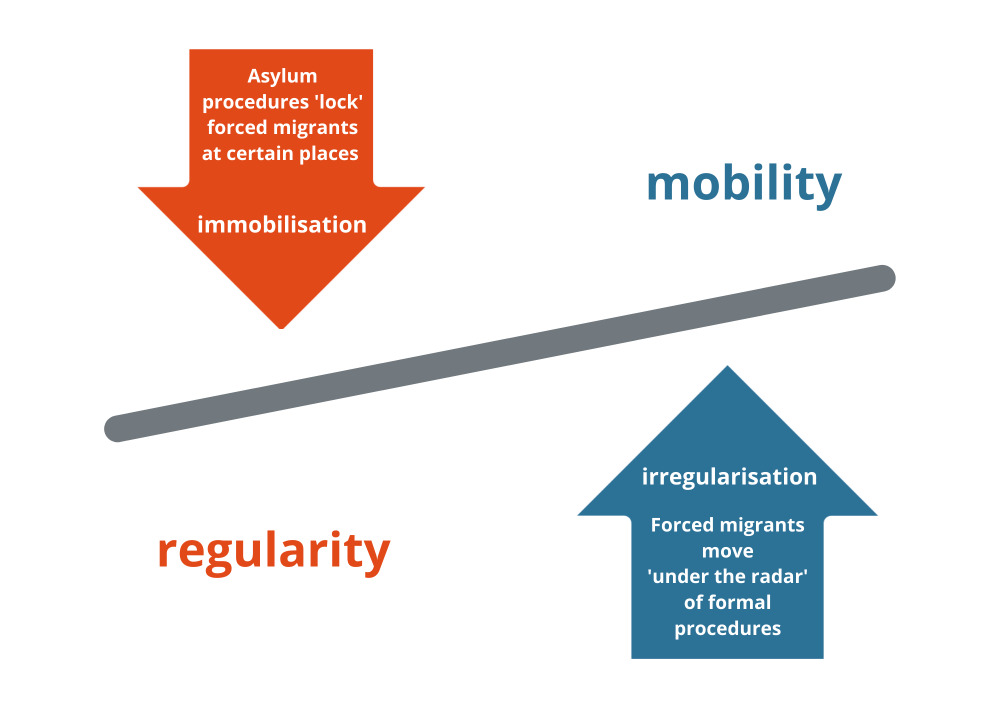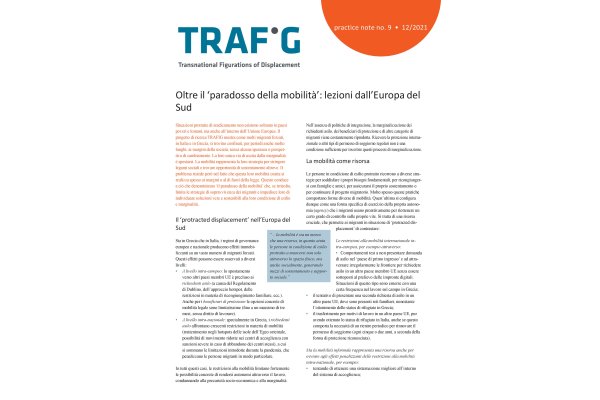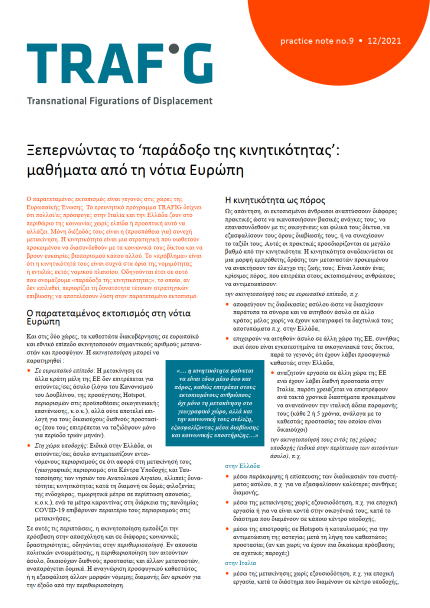TRAFIG practice note no. 9
Resolving the ‘mobility paradox’ - Lessons from southern Europe
available in English, Italian, Greek
Protracted displacement exists in the European Union. TRAFIG research shows that many forced migrants in Italy and Greece live on the margins of society without hope for or the prospect of change. Their only way out is to go on the move. Mobility is their strategy to connect to social networks and find livelihood opportunities elsewhere. The problem is that their mobility is often on the fringes of or entirely outside the law. It leads to what we call the ‘mobility paradox’ that, if left unresolved, limits migrants’ own survival strategies from serving as resources/solutions to protracted displacement.
Based on the TRAFIG research in Italy and Greece - the results of which can be found in TRAFIG working paper no. 9 - this corresponding practice note explains what generates the mobility paradox and presents ways in which it can be resolved.
 ©BICC/ Aristotle University of Thessaloniki
©BICC/ Aristotle University of Thessaloniki
Authors: Panos Hatziprokopiou, Elvan Isikozlu, Eva Papatzani, Ferruccio Pastore
You can download TRAFIG practice note no. 9 in:
Cite as: Hatziprokopiou, P. et al. (2021). Resolving the ‘mobility paradox’: Lessons from southern Europe (TRAFIG practice note 9). Bonn: BICC. DOI: 10.5281/zenodo.5845864
Cite as: Hatziprokopiou, P. et al. (2021). Oltre il ‘paradosso della mobilità’: lezioni dall’Europa del Sud (TRAFIG practice note 9, Italian). Bonn: BICC DOI: 10.5281/zenodo.5997115
Cite as: Hatziprokopiou, P. et al. (2021). Ξεπερνώντας το 'παράδοξο της κινητικότητας': μαθήματα από τη νότια Ευρώπη (TRAFIG practice note 9, Greek). Bonn: BICC DOI: 10.5281/zenodo.6108670
This practice note is based on: Roman, E. et al. (2021). Figurations of Displacement in southern Europe: Empirical findings and reflections on protracted displacement and translocal networks of forced migrants in Greece and Italy (TRAFIG working paper no. 9). Bonn: BICC. DOI: 10.5281/zenodo.5841883


